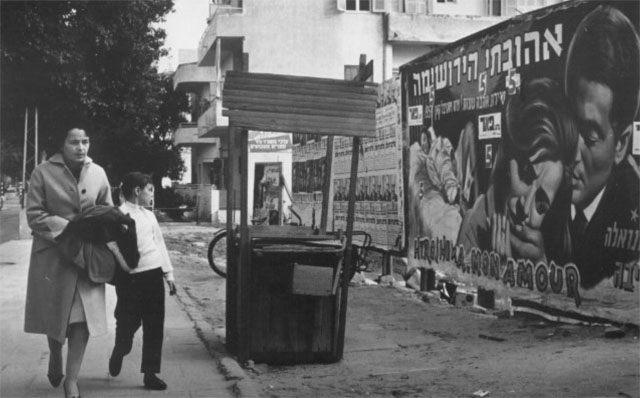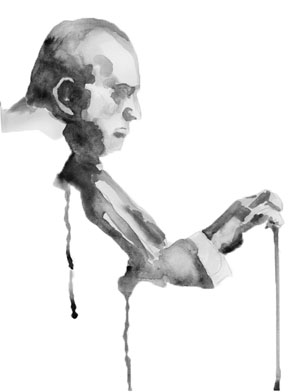There’s suddenly so much reading to catch up with that I’m simply going to siphon off the newsier items into another entry that’ll be following shortly—all of them except one, for obvious reasons: On Sunday, the Berlinale will be screening Chris Marker’s Description d’un combat (Description of a Struggle), winner of the Golden Bear for Best Documentary in 1961.
“Chris Marker passed away at the age of 91 in July of this year, and in memory of his passing, a good portion of this issue is dedicated to his films and legacy,” writes editor Rolando Caputo, introducing Senses of Cinema 64. “Our dossier of articles is far from a complete overview of Marker’s filmography and career, but it is eclectic enough to cover everything from Marker’s editing strategies to his obsession with his beloved cats.”
Besides the six pieces on Marker, the new issue also features Rutger H. Cornets de Groot on Stanley Kubrick, Jay Adler on Claude Sautet, Zain Jamshaid on Chantal Akerman, a special section on “Key Moments in Australian Cinema,” and of course, the always excellent festival reports, book reviews, and film annotations. Tweets Ryan Gallagher, “Tons sent to Instapaper this morning.”
Well, there’s more. Because the second issue of the revived Screen Machine is out as well. And it’s “another thought experiment,” writes editor Brad Nguyen, “the idea being to push ourselves to go against the grain of accepted wisdom and to critically re-evaluate how we relate to cinema…. [O]ur essayists were asked to discuss cinema in terms of ‘absence.’ Again, the theme around which this issue is organized is designed intentionally to challenge us in our writing; film criticism as a practice is generally tied up with descriptions of a film’s positive content rather than discussions of what is not there. So how does absence figure into cinema?”
Two samples: “Huw Walmsley-Evans has written a moving personal essay inspired by the absence in the critical landscape left by the American film critic Andrew Sarris who passed away earlier this year.” And “Phil Coldiron, by way of Stanley Cavell, discusses how images produce desire by showing what is absent to the viewer and how this structures the melancholic and redemptive qualities of cinephilia.” In short: “To be a cinephile,” writes Nguyen, “is not about escaping the world. For us, movies are our way into the world.”
More reading. Paul Ramaeker has posted the third part in his series, “Mad Love: The Surrealism of the Supernatural Romantic Melodrama.”
For the TLS, Philip French takes two new volumes on Hitchcock as an opportunity to outline a brief history of the critical evaluation of his work. Related: Ivan Radford in Little White Lies on Hitchcock’s “affection” for London.
Via Matt Zoller Seitz, Andreas at Pussy Goes Grrr: “Between the placidity of Ozu’s frames and the frustrations of his characters, An Autumn Afternoon started reminding me of American painter Edward Hopper.”
On the aesthetics of the Romney video: Greg Allen, Richard Brody (New Yorker), and James Poniewozik (Time).
For news and tips throughout the day every day, follow @KeyframeDaily on Twitter and/or the RSS feed. Get Keyframe Daily in your inbox by signing in at fandor.com/daily.





